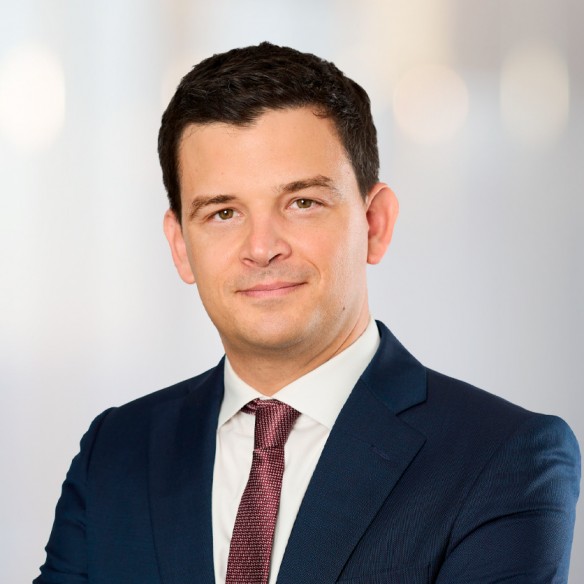There is a wealth of dry powder to spend but 2023 has seen M&A deal activity hampered by rising costs of debt, unstable markets, supply chain issues, general political uncertainty, and fear of global recession. So, what does 2024 have in store for European M&A?
“The healthcare sector, like many others, has faced substantial challenges due to economic pressures. Increased interest rates, combined with a global economic slowdown, have created an uncertain environment for dealmakers. Financing constraints and a misalignment in valuations between sellers and buyers will continue to suppress deal volume into 2024. Having emerged from the challenges of the COVID-19 pandemic, many healthcare companies are looking to grow again through M&A, while financial sponsors are sitting on record amounts of capital which they need to deploy, so the hope is that as interest rates stabilise and financing eases, some of that pent up demand will be unleashed and we will begin to see a rebound. Key industry trends include the increasing importance of biotech and de-risking of global supply chains, while MedTech, at the intersection between healthcare and technology, will continue to attract interest from growth investors and mid-market acquirers. Buy and build strategies are popular and investors may look to assemble an executive team in the short term and then execute a platform investment in the latter part of the year, capitalizing on improved market conditions. Joint ventures and strategic minority investments can facilitate collaboration and mitigate risks in this complex environment.”
Liam Arthur, M&A, London
“Despite the recent economic challenges and the linked slowdown in fundraising and M&A activity, the demand for growth capital should be robust going into 2024 and into the longer term. This will be driven by a combination of factors, including ample dry powder, valuation expectations being met or bridged with creative solutions, higher interest rates making costly alternative financing sources, and a demand for capital from companies that have recently matured into the growth segment and/or have deferred funding due to the recent economic challenges. Continued innovation and the emergence of new industries will also drive demand in fields such as health-tech, ESG and renewables, digital economies and fintech, and AI and automation/robotics. While the landscape will continue to evolve with economic cycles and regulatory changes, the overall trajectory points to a robust future for growth capital investing and a promising market for diligent investors.”
Andrew Houghton, M&A, London
“While the initial hype around AI is over, the technology will continue to be a key area of focus for investors. I expect there to be sustained interest in promising start-ups and SMEs that have capitalised upon expanding data availability and inexpensive computing power and offer fine-tunable or sector-specific products. I also expect there to be an increasing number of ‘picks and shovels’ plays, with investments in chip manufacturers, data centres, content aggregators and other AI infrastructure businesses. Generative AI should remain important to firms and their portfolios across an expanding number of operational use-cases – from deal sourcing and analysis to software coding, to marketing creation.”
Oliver Howley, TMT, London
“France’s M&A market has typically been one of the most resilient in Europe. However, similar to the situation across the continent, investors have had to grapple with ongoing inflation and its impact on economic demand, as well as the consequences of escalating interest rates. Given this unfamiliar and evolving economic landscape, we anticipate that deal volume in France's M&A market will demonstrate greater resilience compared to deal value. As further tightening measures are implemented, asset prices are likely to experience a decline. Additionally, the tightening financing conditions in public markets should benefit small to mid-sized deals, particularly those sponsored by private equity firms with the ability to access private debt from direct lenders.”
Matthieu Lampel, M&A, Paris
“We can expect the trend towards increased regulatory intervention in M&A transactions to continue into 2024. Foreign investment screening is expanding rapidly, with new regimes in countries including Sweden, the Netherlands and Belgium in 2023, and more expected in 2024, for example in Ireland and Bulgaria. On the antitrust side, authorities around the globe are calling for stricter merger control enforcement, and there is increased scrutiny of bolt-on transactions, minority shareholdings and cross-directorships. Labour issues, in particular non-competes and no-poach agreements – are also expected to remain under the spotlight. These issues are by no means insurmountable, but do add to transactional complexity, as well as impacting deal timetable, risk allocation and certainty of execution. More than ever, this means that well prepared financial investors will be at a competitive advantage.”
Mary Wilks, Antitrust, London
“Right now, in the marketplace there are about 14,000 GPs out there searching for $3.2 trillion of capital and there are $3.7 trillion worth of dry powder. So, there are firms trying to raise today the exact same amount of money that can be invested over the next several years and this is a massive amount of money (that’s about $1 of supply for every $3 of demand out there that GPs are searching for). To get the PE industry functioning again, we need to get some capital flowing in larger amounts back to LPs so that they feel confident about investing in funds. There's a very large backlog of portfolio companies that need to exit and LPs need that liquidity. However, the ongoing uncertainty in the market means that there's a gap between buyer and seller price expectations that has persisted over the last 12 months which increases PE holding periods. The bid ask gap needs to narrow to get deals done. We need to get back to doing deals and while many GPs/LPs are utilising the secondary market, continuation funds, strip sales, NAV lines, to get cash back into the pocket of LPs, we need to get back to doing full exits and at scale. What should give investors confidence is that absent a black swan event, or an escalation of war, I don’t see anything fundamentally broken in the banking system or huge asset bubbles. The PE industry has flourished in comparable interest rates (2006/7) so we really need to ask when we are going to get back to real deal making.”
Andrew Wingfield, M&A, London






